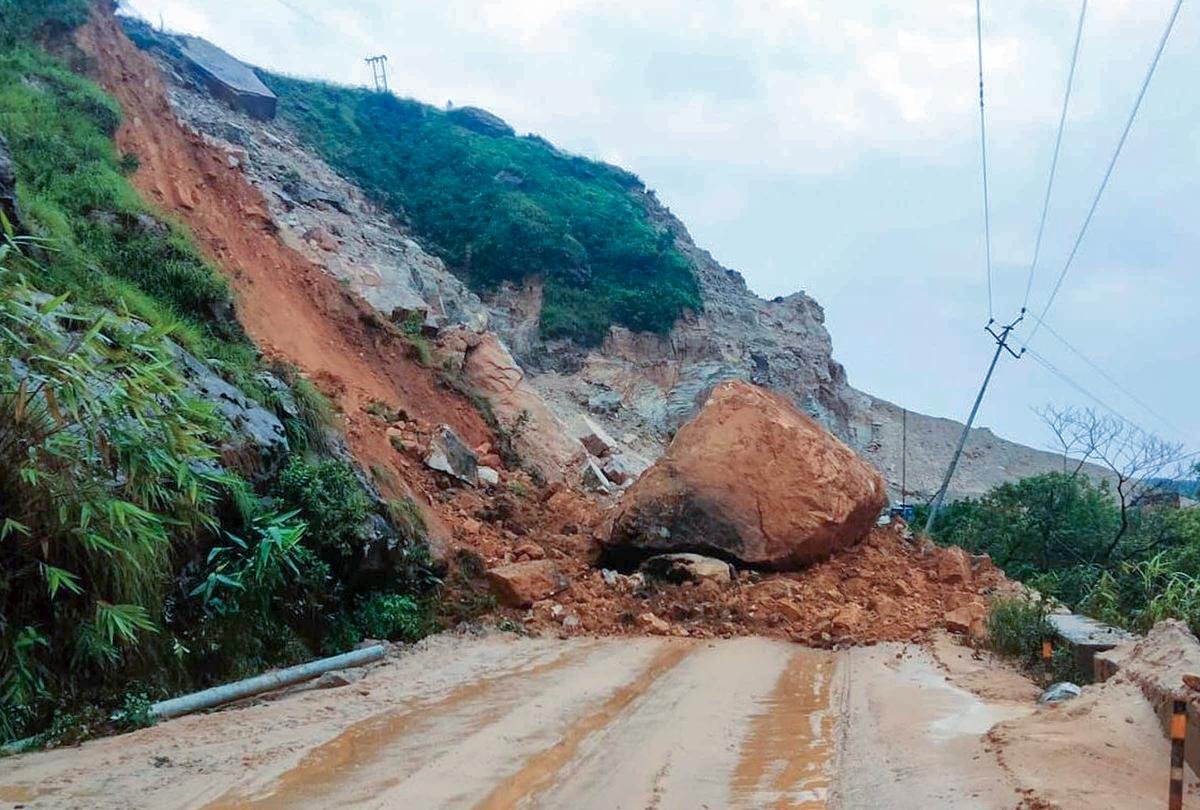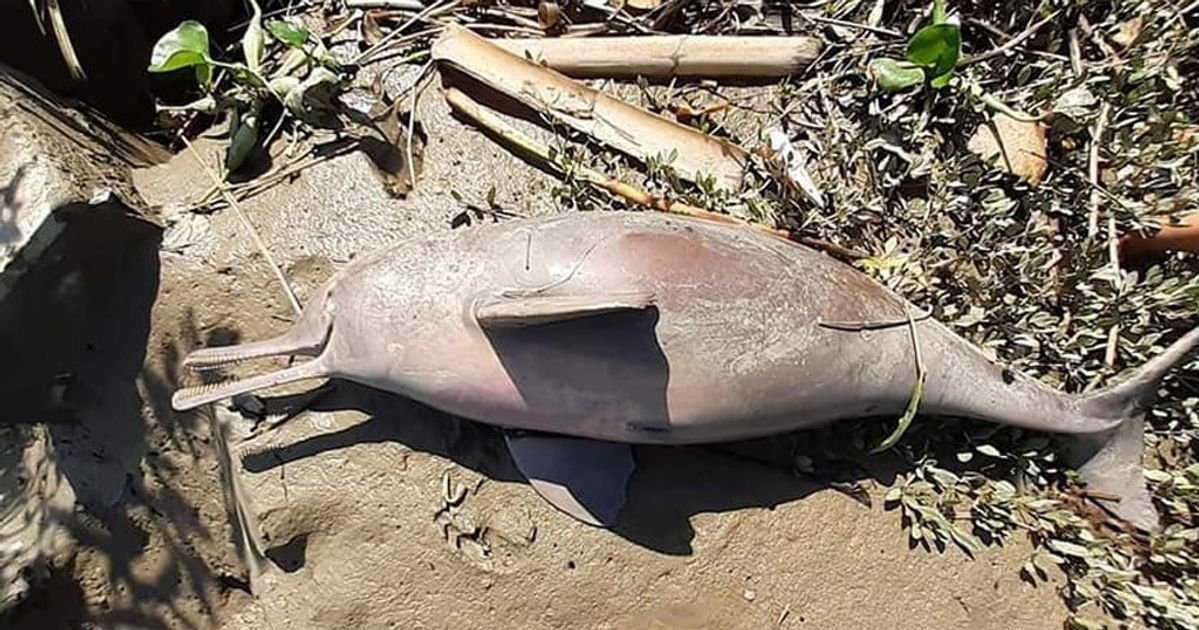HT Digital
June 19, Wednesday: Rampant sand mining along the Manda (Dudhnoi) River has been ongoing for nearly two months, putting at least seven villages in Assam and Meghalaya in a precarious situation due to accelerating riverine erosion. This severe erosion is making many nearby areas increasingly dangerous for habitation, creating a dire situation for the affected communities.
Residents from villages such as Nokmakundi, Kakalipara, and Kasumari, among others, have repeatedly lodged complaints with the Deputy Commissioner of Goalpara. These written grievances highlight the destructive impact of sand mining on the middle stretches of the river, which has left their homes vulnerable to erosion.
The issue has gained further attention following a recent visit by State Minister Piyush Hazarika. On June 7, during his inspection of flood-prone areas in Goalpara, Hazarika directed officials to combat soil erosion and initiate protection measures for several areas along the Dudhnoi River.
District officials confirmed that permission for sand mining had been granted after receiving a no-objection certificate (NOC) from some individuals and approval from the Geological Department. Notably, the complaints about sand mining are not new; similar concerns were raised last year by the same villages. This year, however, the problem has escalated significantly.
The NOCs in question were obtained from only one village comprising a few households, whereas the impact of sand mining has been felt across both Assam and Meghalaya. At least seven villages in these states have been affected, prompting a joint complaint by the villagers to the Deputy Commissioner of Goalpara.
One resident from Kasumari, who requested anonymity, criticized the Forest Department for allowing such extensive sand extraction without considering the environmental consequences. “It is strange that the Forest Department, which is usually vigilant about tree cutting, has permitted this large-scale sand mining in the Manda River, ignoring the impact on the local environment,” he said.
Following the complaints, a team from the Forest Department visited the affected villages. However, their arrival was delayed, and they reached Nokmakundi at 2 AM instead of the scheduled 10:30 AM, by which time the villagers had dispersed.
A team member explained that the delay was due to an emergency call about another incident. However, no prior information was given to the villagers to ensure they remained in place for the meeting. This miscommunication has further frustrated the residents.
Villagers have questioned the logic of accepting an NOC from only one village when multiple villages are suffering from the consequences of sand mining. “We want the mining to stop immediately as it is causing irreversible damage along the river banks in both Assam and Meghalaya,” said Brayan Marak from Kasumari.
A visit to the affected areas revealed that places previously deemed safe are now dangerously close to being washed away. Last year, attempts to mine sand from the same area were thwarted by a complaint to the Deputy Commissioner, which prompted prompt action. This year, however, the response has been slower, leaving villages in a precarious situation.
One resident from Nokmakundi described the increased danger: “We are scared to approach the river bank as it is rapidly eroding. The operation of at least six pumps to mine sand has made life difficult, and we had to cut down many trees near the bank to prevent further erosion.”
The ongoing sand mining has also impacted the Manda Eco-Tourism Centre, located on the riverbank. Darmen Sangma, secretary of the Manda Eco Society, reported observing numerous dump trucks carrying sand daily. “The pumps in the middle of the river have caused the river to change course, threatening many habitations. We urge the authorities to intervene quickly to stop this devastation,” Sangma said.
Wind Marak, secretary of Nokmakundi, added that the sand mining had even exposed the foundations of an upcoming bridge in Kentra, North Garo Hills. This led to a joint complaint being filed with the Goalpara Deputy Commissioner.
The Deputy Commissioner of Goalpara, Khanindra Chaudhury, confirmed that mining had been stopped following the complaints. “The Mining and Geological Department approved the mining, but it has been halted since the complaints arose. The Forest Department is currently conducting hearings with locals, and we will decide after receiving their report,” Chaudhury said.
Despite this assurance, villagers remain dissatisfied, questioning why broader consent was not sought. “We have seen up to 20 dump trucks carrying sand from our river daily. These operations have dramatically altered the river’s course, endangering our lands,” lamented a resident.
The affected communities have warned that if the authorities fail to act swiftly, they will have no choice but to protest publicly to protect their homes and lands from further destruction.







